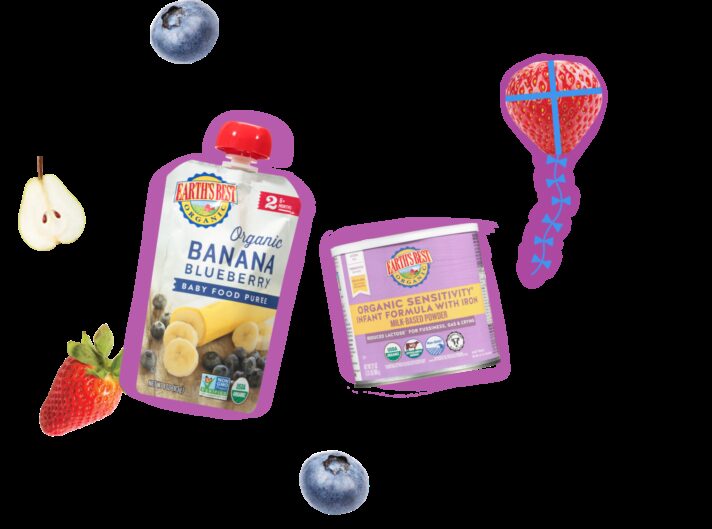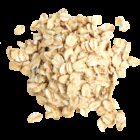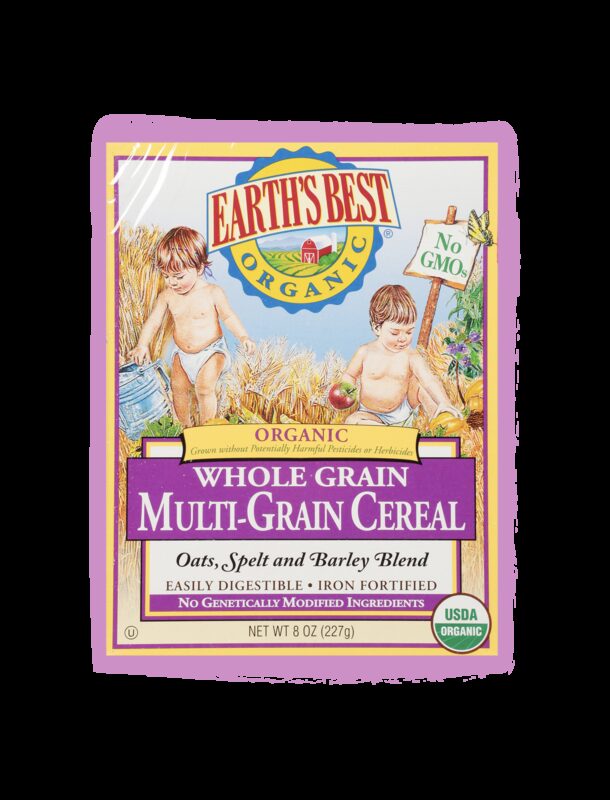

Dr. Deena Blanchard
Certified pediatrician
How Introduce Solids (and Signs of Readiness)
Starting solids with your little one is an exciting time! Some parents may feel a bit nervous, and that’s perfectly normal too. Until now, your baby’s nourishment has been limited to breast milk or iron-fortified formula, but now things begin to change as a whole new tasty world of food possibilities awaits.
Here is a step-by-step guide to starting solids. Always be sure to talk with your pediatrician before offering your baby solid foods if you have any questions or concerns, have a family history of food allergies, or if your baby has allergies or eczema.
Starting Solids: When can I introduce solid foods to my baby?
The American Academy of Pediatrics recommends starting solids around 6 months of age. Solid foods can be introduced once your baby is developmentally ready (see below), which usually occurs between 4-6 months of age, but introducing solid foods too early may raise the risk of overweight later on. The AAP supports continued breastfeeding after introducing foods at six months for as long as you and your child wish, for 2 years or beyond.
What are some signs that my little one is ready to try solid foods?
Every child’s readiness depends on their own rate of development. Signs of readiness include...
- Has good head and neck control (can they hold their head up to eat?)
- Able to sit with support in a high chair or infant seat
- Seems interested in food when others are eating
- They no longer have the reflex to push objects out of the mouth with their tongue
- Can pick up toys and bring them to the mouth
- Opens mouth when a spoonful of food is offered
How Do I Feed My Baby?
Position your baby
Feed your little one in a high chair adjusted to support your baby’s head, neck and trunk. This allows your baby to face you during feeding. Your baby should always be sitting upright (to prevent choking) and strapped in (to prevent falls).
Start with small amounts
Remember, up until now, breastmilk or formula is all your little one has ever tried! Start with half a spoonful or less, and talk your baby through the process. Try diluting it slightly for the first few feedings (thin with breastmilk or formula) if you need to. If your baby rejects the spoon or looks confused or insulted, do not force your little one to eat. You can try again later, or even wait a day or two.
Expect it to be messy!
We mean super messy. It’s very, very normal for the first several freedings to end up more on the chair, the floor, the bib, as your baby is learning to handle solid foods.
Note: Cereal or other solid foods do not belong in the bottle. Placing cereal in the bottle promotes obesity and requires cutting the nipples, which can lead to choking risks. In rare cases (i.e. reflex) putting cereal in a bottle may be recommended, but always talk with your pediatrician first.
How much food should I expect my baby to eat?
Babies may only eat a few spoonfuls when first introduced to solid foods, and that is okay. Starting solid foods is a gradual process, and every baby is different. Trust your little one to tell you when they are done eating by closing their lips, turning their head away from the spoon or pushing the spoon away. As a parent or caregiver, your role is to decide what foods to offer and when, but it’s important let your child decide whether and how much to eat.


Starting solid foods is a gradual process, and every baby is different. Trust your little one to tell you when they are done eating by closing their lips, turning their head away from the spoon or pushing the spoon away.
Is there a specific order in which I should introduce foods?
Your baby’s first foods are your choice. There is no recommended “best” order for introducing solids. What is most important to keep in mind is the following...
- Always introduce foods in developmentally appropriate forms (soft or finely pureed) to prevent choking.
- Offer 1 new “single ingredient” food from any food group at a time (such as squash, pears or turkey) and watch for any signs of allergic reaction. Continue introducing a new food every 3 days.
- Explore a healthy variety of foods and flavors-and have fun! There’s a whole delicious world of veggies, fruits, proteins, grains, healthy fats and more waiting to be enjoyed.
- Offer foods rich in iron and zinc, such as beef, turkey, chicken, or iron fortified cereals.
- It is okay to incorporate spices and herbs into your little one's foods. For example, you can mix cinnamon into sweet potatoes or cilantro into avocados.
- The most up-to-date AAP Recommendations advise complementary foods, including potential allergens, can be offered to healthy infants (in the right consistency for your little one) after 4-6 months of age. Introducing and regularly feeding allergenic foods such as peanut (in the right format) during infancy may help reduce your baby's risk of developing a peanut allergy. Check with your pediatrician about how and when to give peanut products, as a testing for peanut allergy is recommended for babies with severe eczema and/or egg allergy.
Once you have offered a food without a reaction, mixing it into other previously tolerated foods is safe. You can start to give your little one a combination of foods such as peas and pears or an interesting grain combination such as apple, oats, and plum.
Remember that it can take 8-10 tries before your baby accepts a new food. Don't give up if your little one turns their nose up at broccoli. Keep offering the food to them; even making a “funny” face doesn’t mean they dont like it, they may just be getting used to a new flavor. Mix it with one of their favorite foods to encourage them to continue trying it. Patience and persistence is key to helping your little one to learn to love a variety of tastes, flavors and textures as they build their blueprint of healthy eating.
This is for informational purposes only and should not be treated as medical advice. The content is not intended to be a substitute for professional medical advice, diagnosis, or treatment. Please always discuss any health and feeding concerns directly with your pediatrician. Never disregard professional medical advice or delay in seeking it because of something you have read above.

Explore our range of nutritious formula and wholesome baby food to help your little one on their foodie journey!
There's something for every step of your little one's journey to starting solids.







